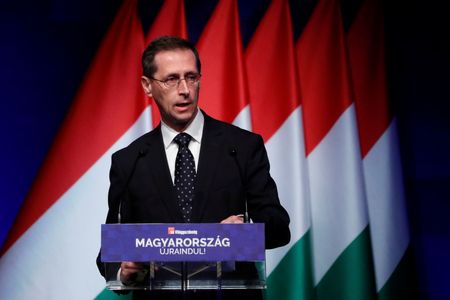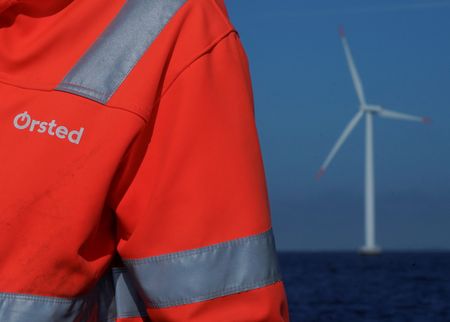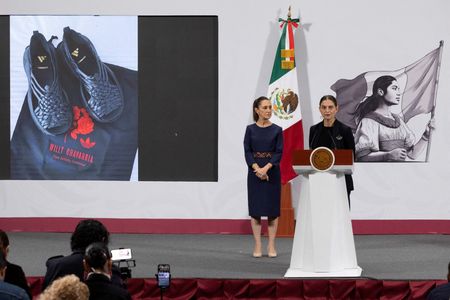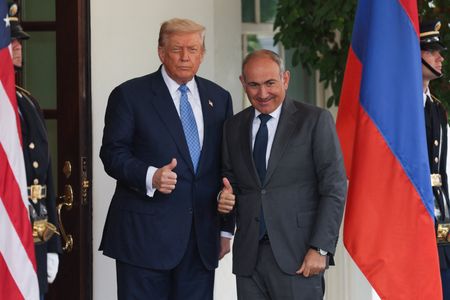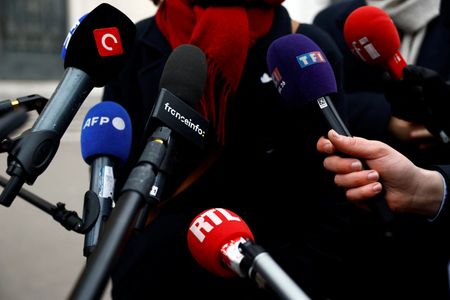By Gergely Szakacs
BUDAPEST (Reuters) -Hungary’s central bank must remain patient amid inflation risks, despite a weaker growth outlook, Governor Mihaly Varga said on Friday, as parliament prepared to confirm former debt agency leader Zoltan Kurali as one of his new deputies.
Varga, Prime Minister Viktor Orban’s former finance minister, took over as central bank governor last month amid growing risks to Hungary’s economic growth and inflation outlooks ahead of a 2026 parliamentary election.
The National Bank of Hungary left its benchmark interest rate steady at the European Union’s joint-highest level of 6.5% at Varga’s first policy meeting last month and ruled out rate cuts for the foreseeable future as inflation rebounds.
“The new tariff measures and the uncertain global economic environment have raised downside risks to the growth outlook,” the bank said in a summary of Varga’s remarks during a meeting of EU finance ministers and central bank governors in Warsaw.
“The fight against inflation is not over, it is indispensable that the bank remains patient.”
This week the bank said U.S. President Donald Trump’s tariffs could lop 0.5 to 0.6 percentage points off Hungary’s growth, denting recovery prospects after two years of near-stagnation amid an inflation surge to the EU’s highest levels.
Falls in the forint, which sank to a 2.5-month low at 410 to the euro on Friday, could strengthen inflationary pressures. The bank last cut interest rates in September and has held borrowing costs steady for six straight months.
The next policy meeting is due on April 29, with Deputy Governor Mihaly Patai’s six-year term expiring a week earlier.
Hungary’s parliament will hold a confirmation hearing for former government debt agency leader Zoltan Kurali to become a central bank deputy governor next Tuesday, the agenda of the meeting showed on Friday.
An economist, Kurali had worked at several commercial and investment banks, including Citi and Deutsche Bank, where he held various management and senior investment banking positions before taking over at government debt agency AKK in 2019.
Kurali’s confirmation is expected to be a formality given Orban’s commanding majority in parliament.
After leaving its base rate steady in a unanimous decision last month, the central bank raised its 2025 inflation forecast to between 4.5% and 5.1% and said tariff hikes and buoyant services and food prices posed upside risks to that projection.
(Reporting by Gergely Szakacs and Alan Charlish. Editing by William Maclean and Mark Potter)

